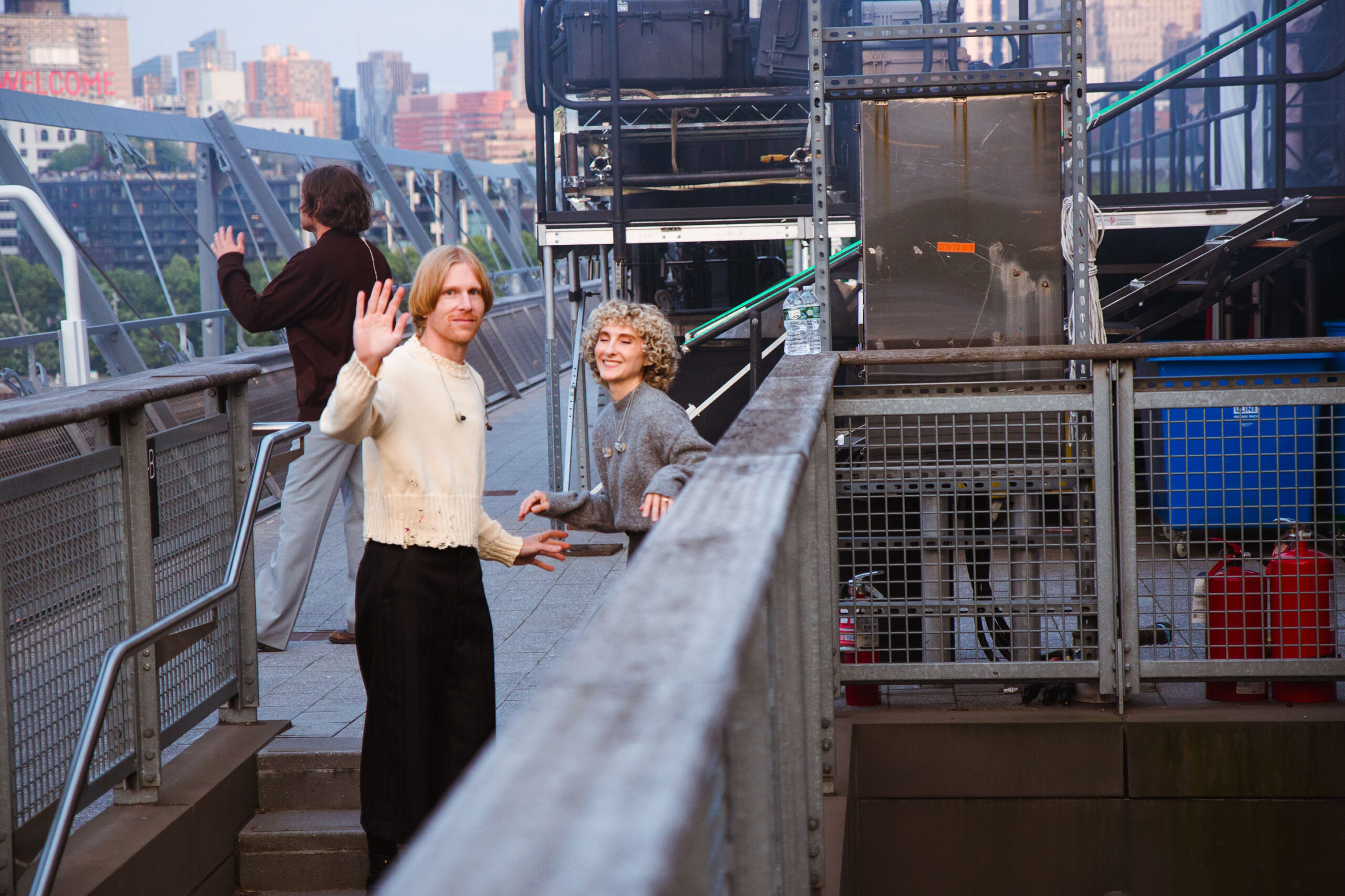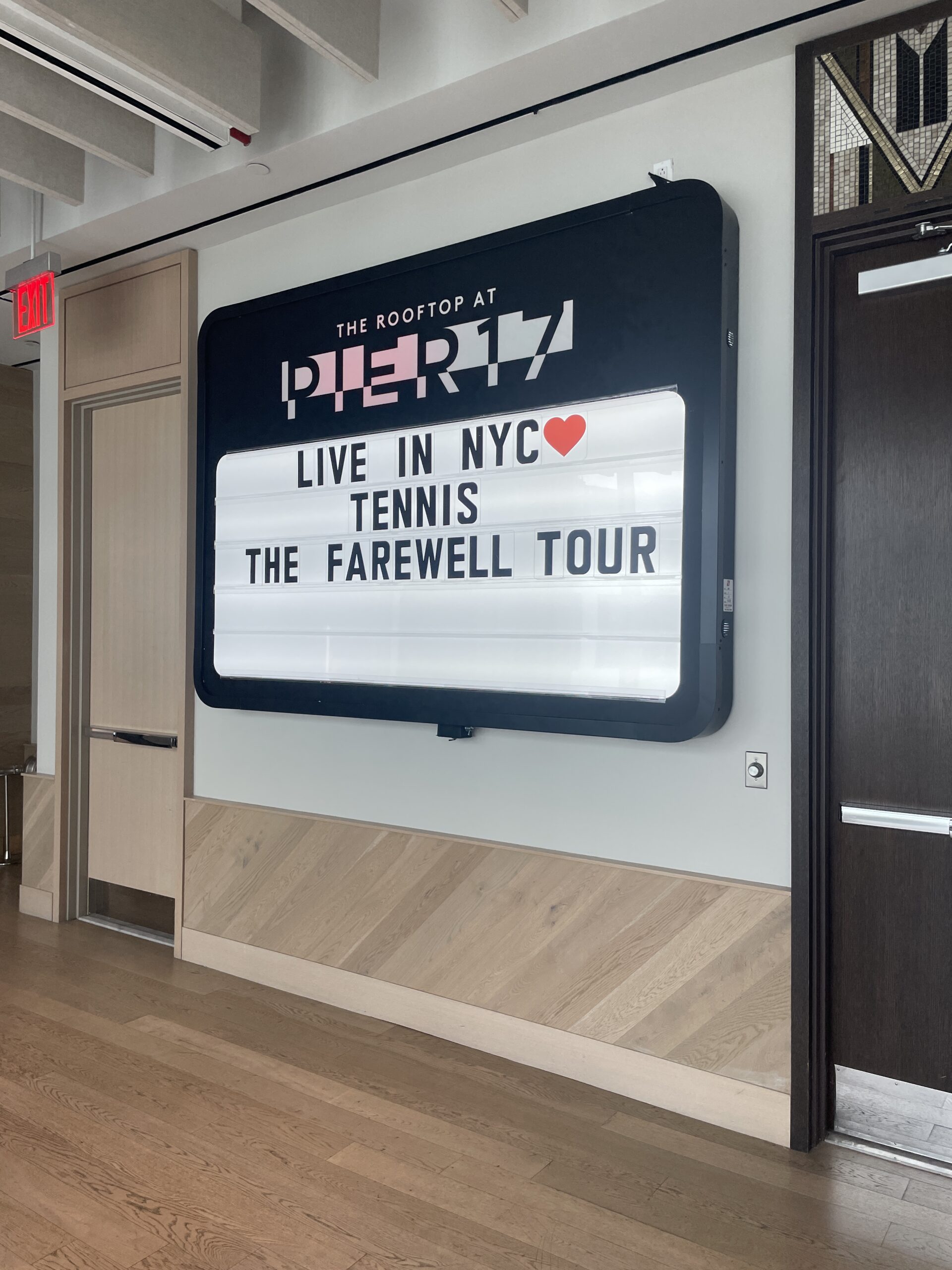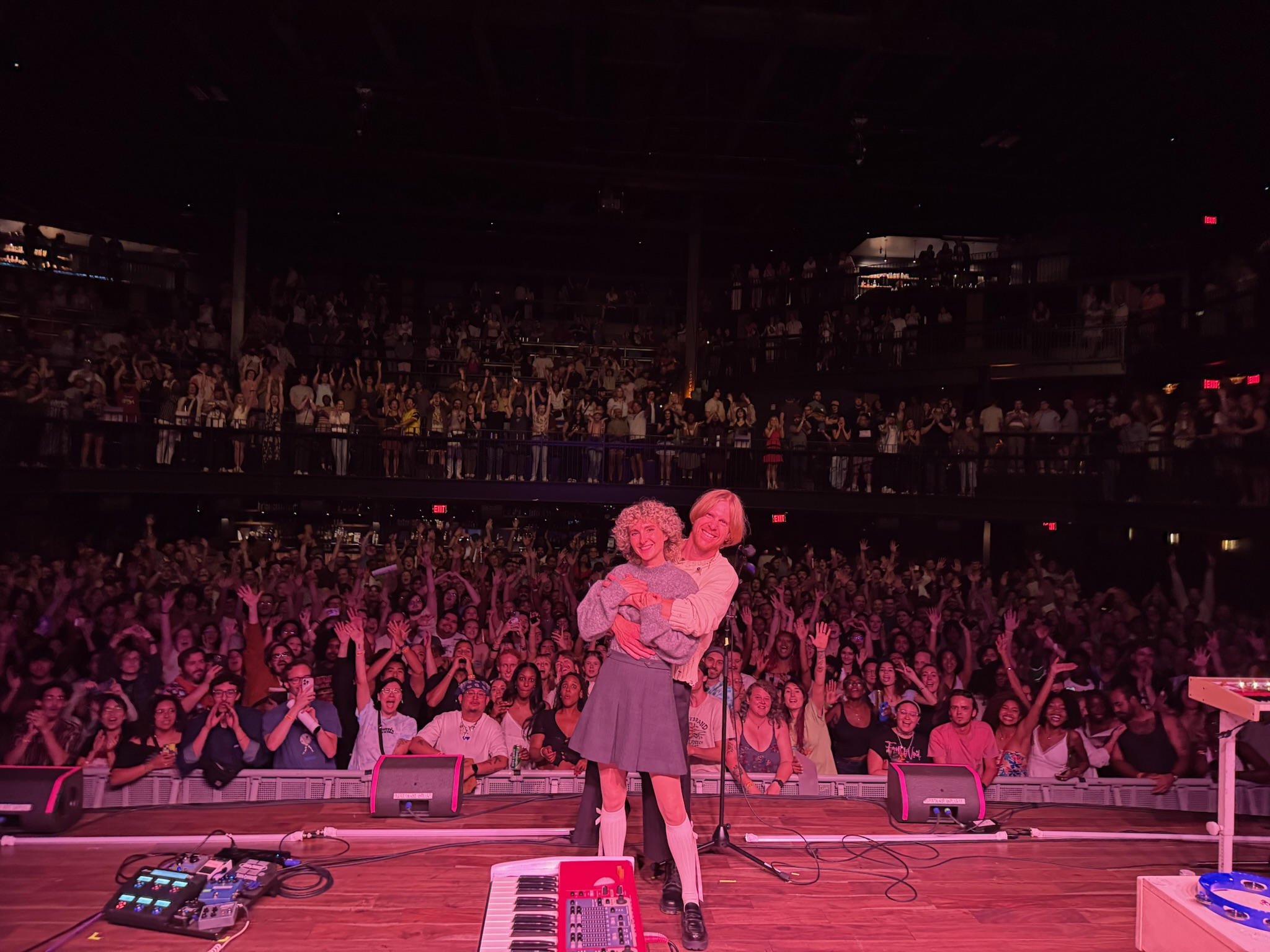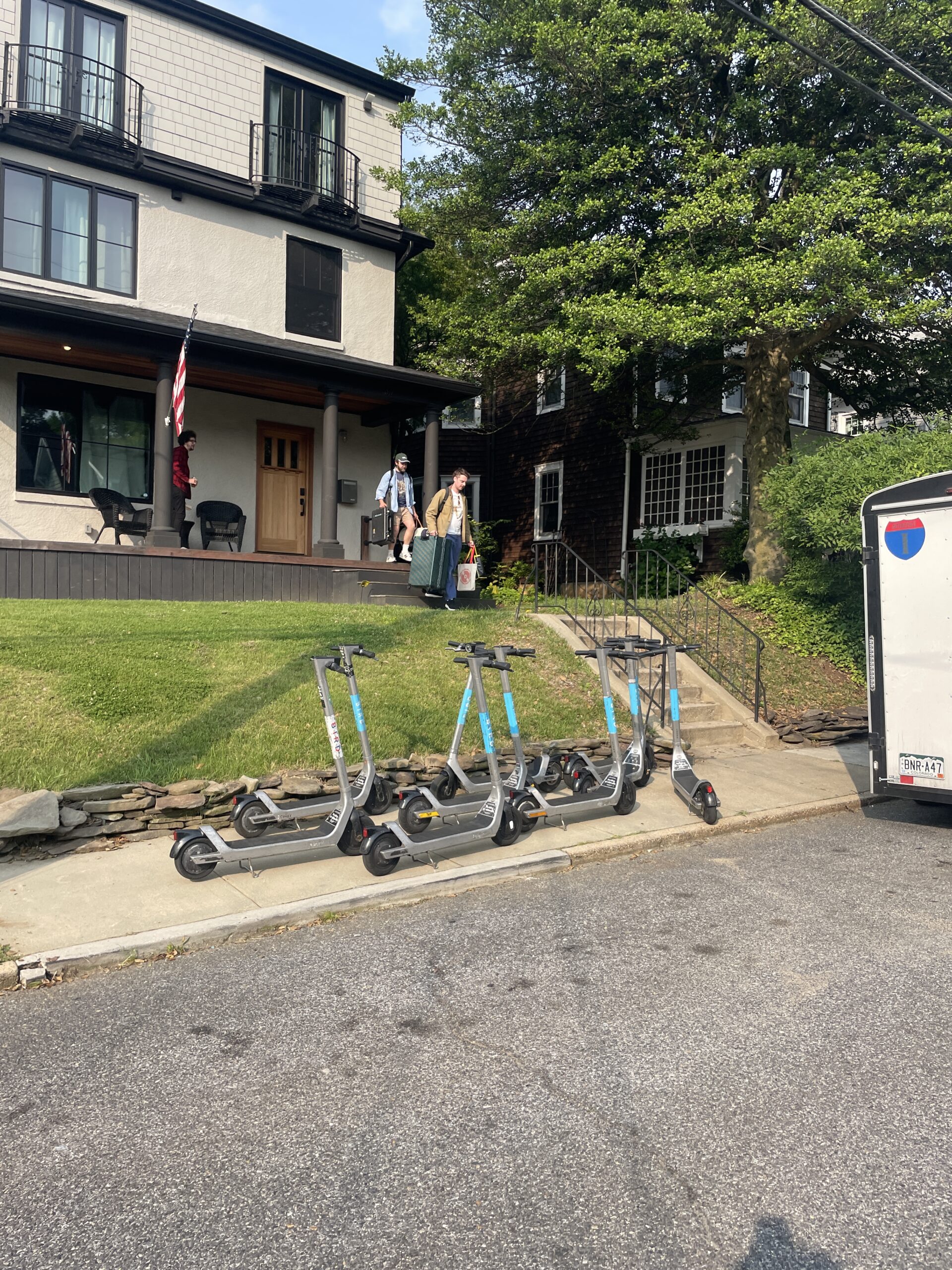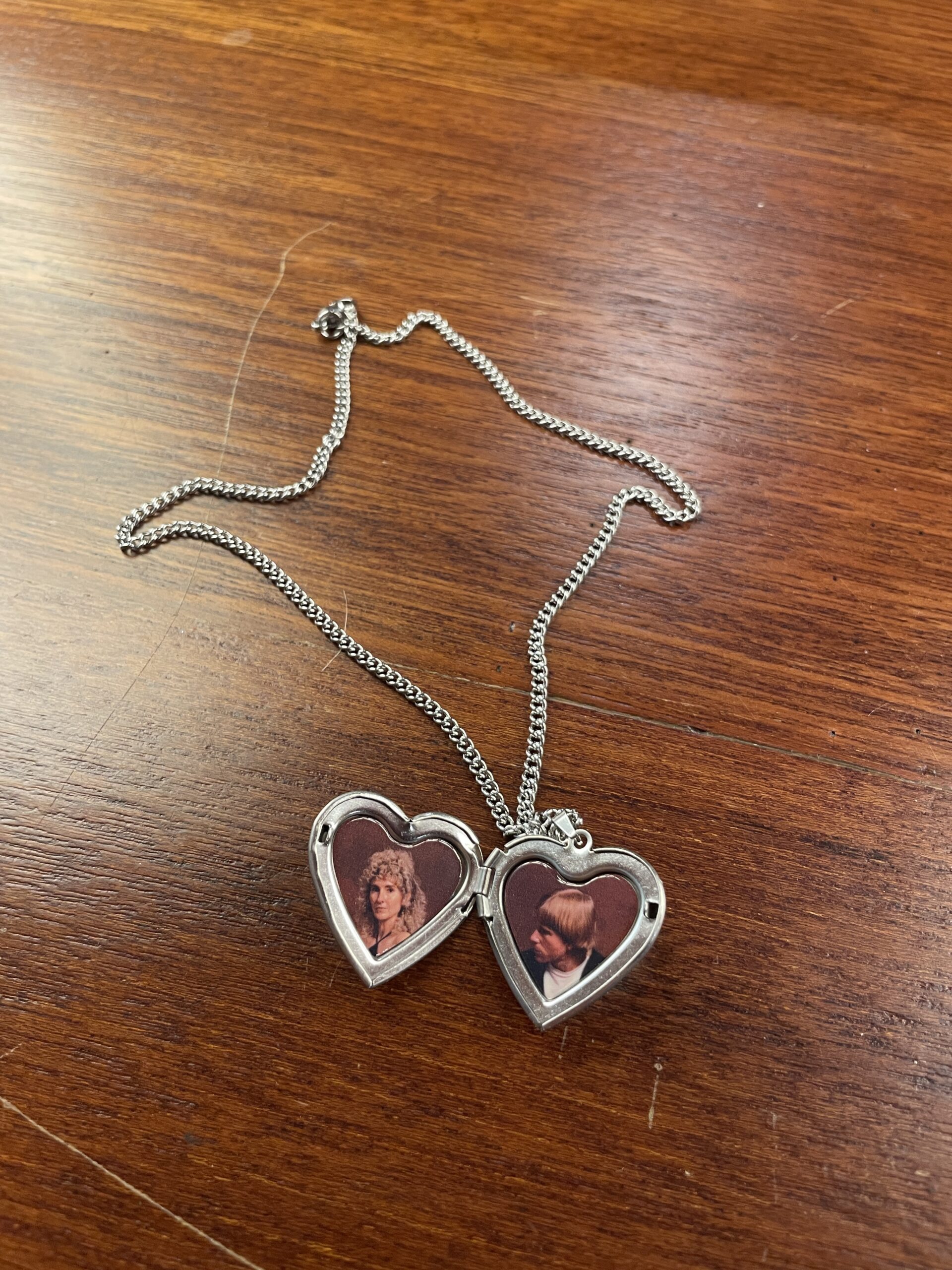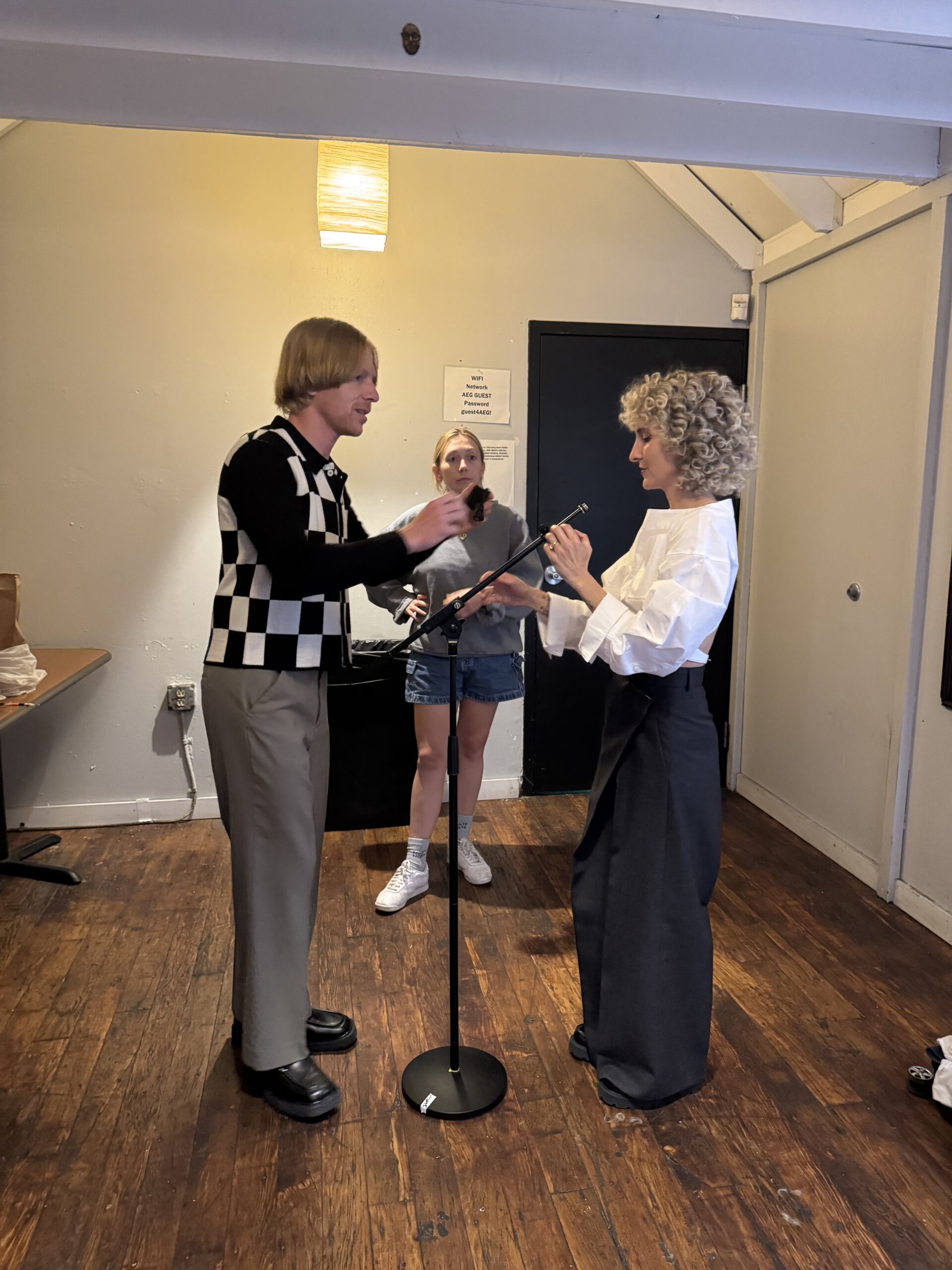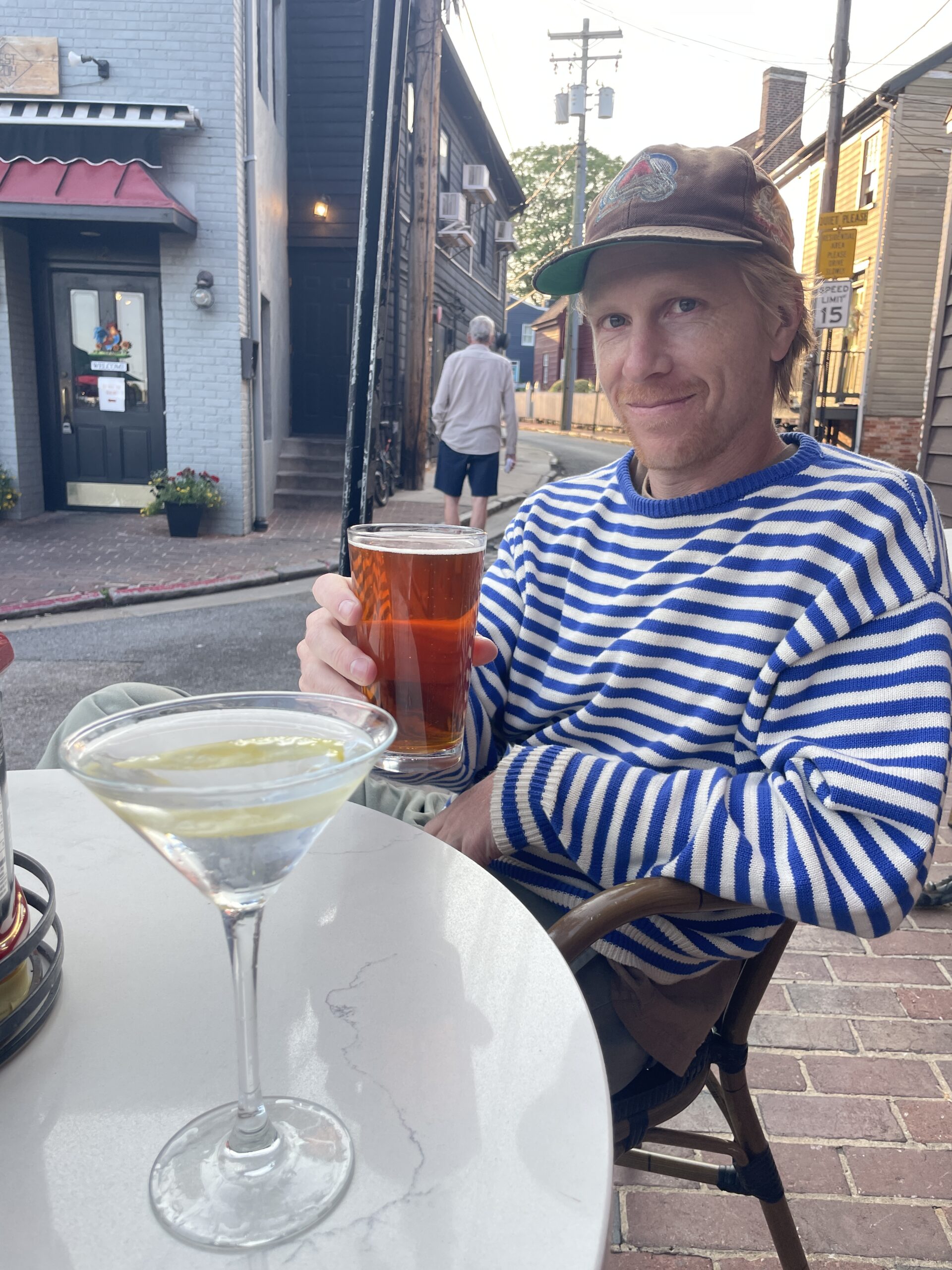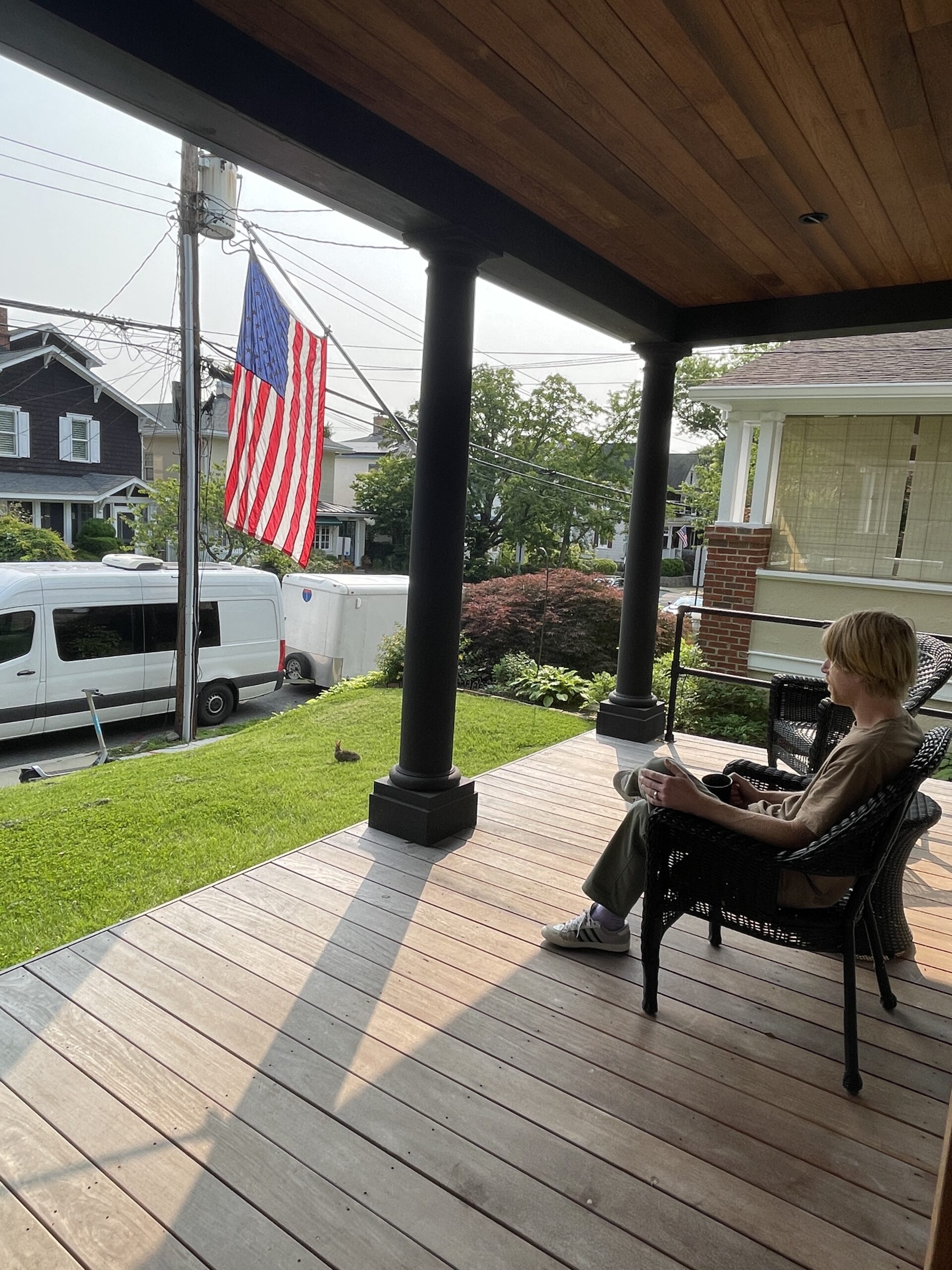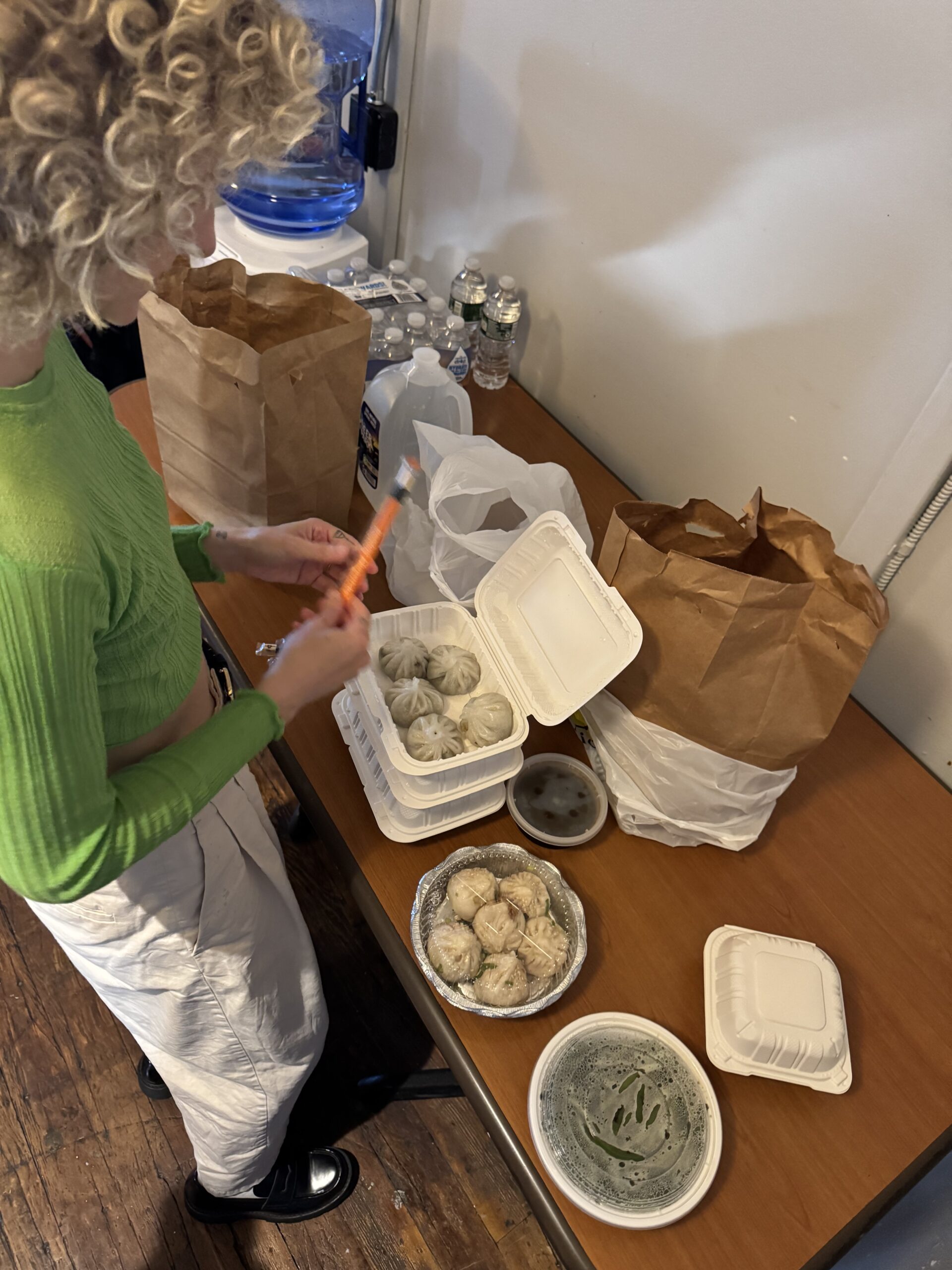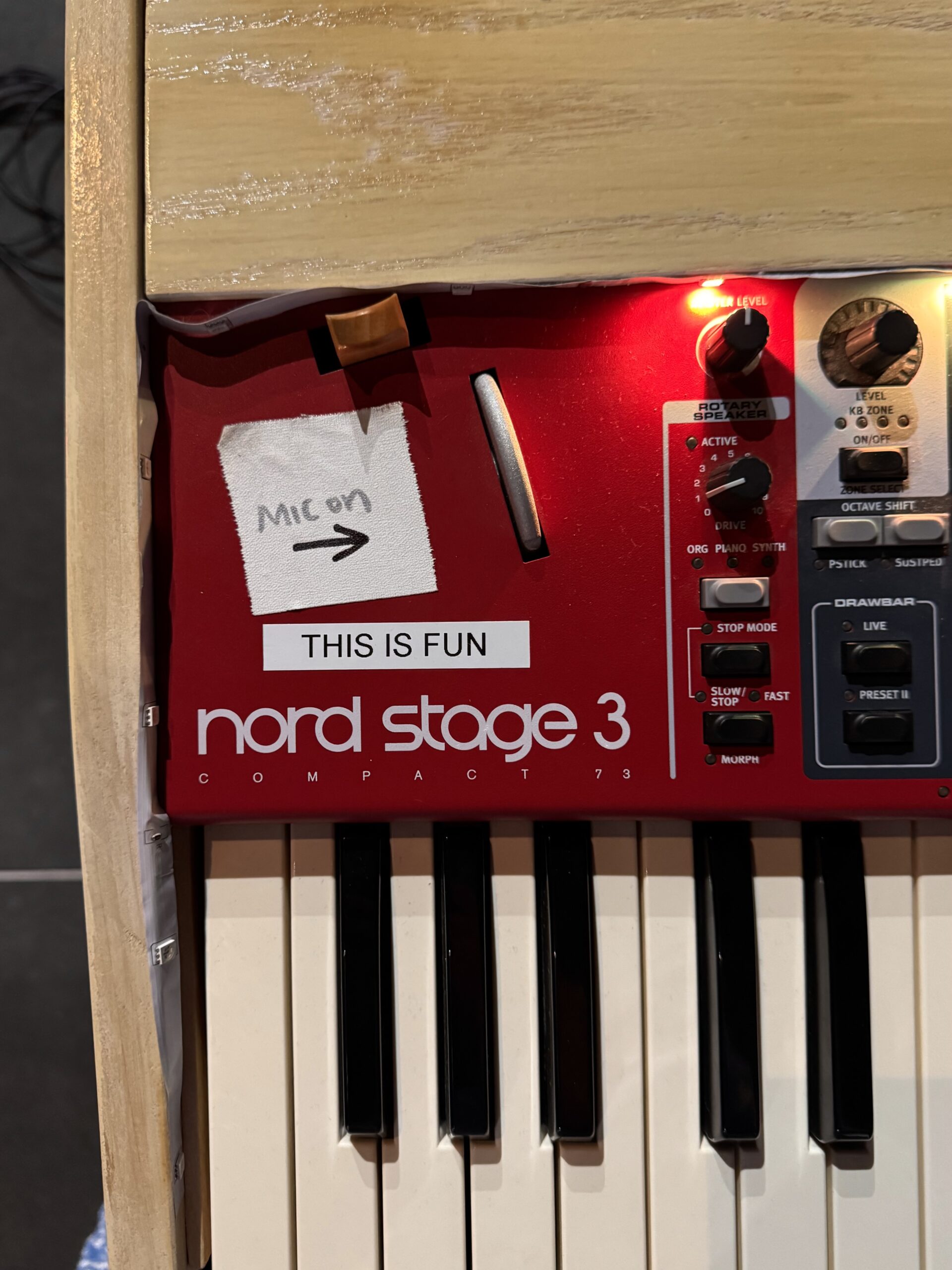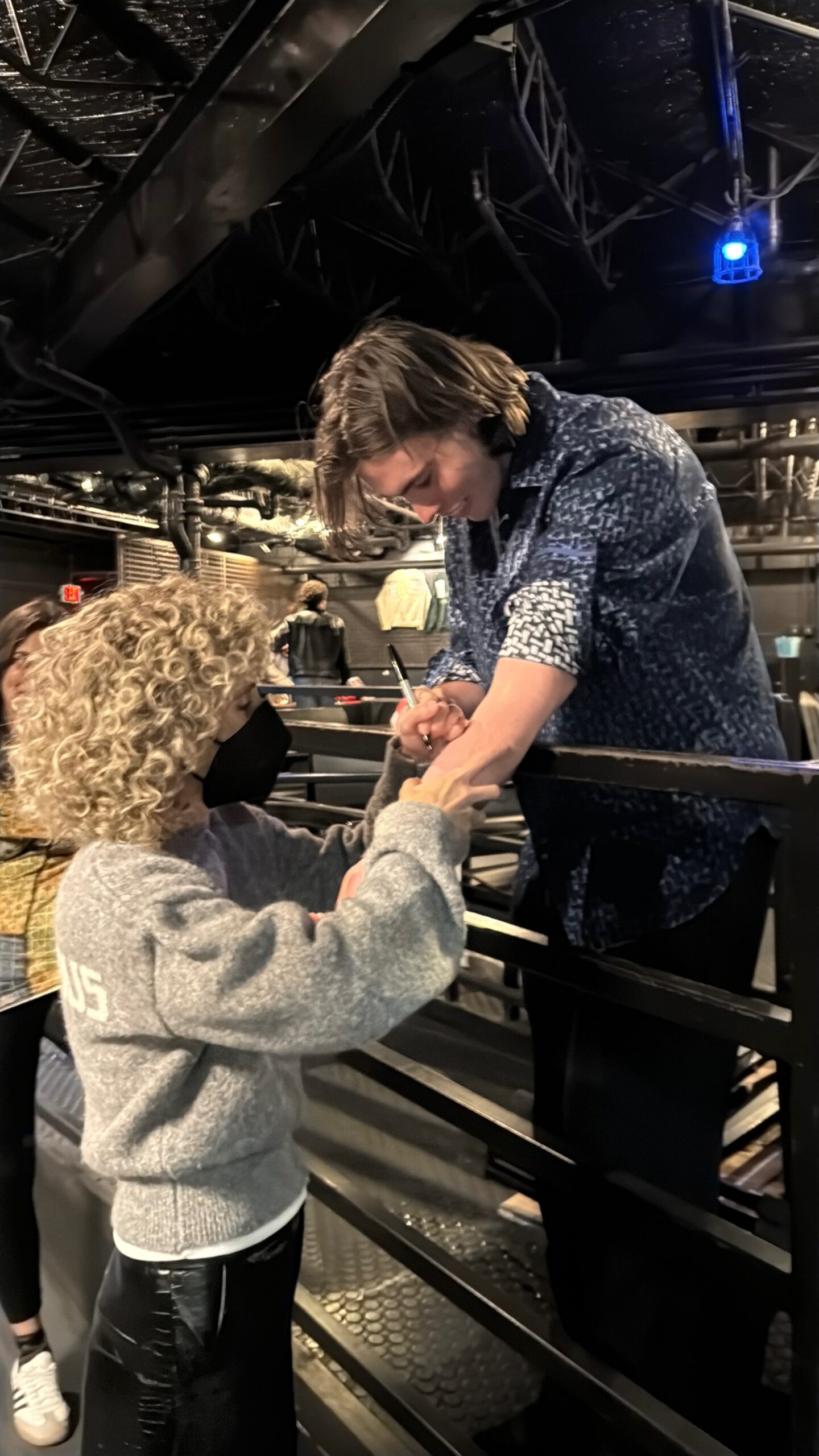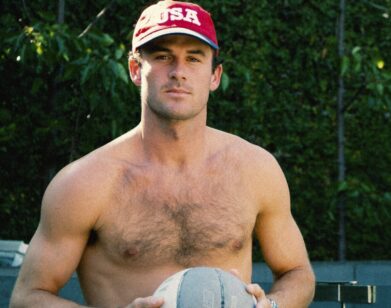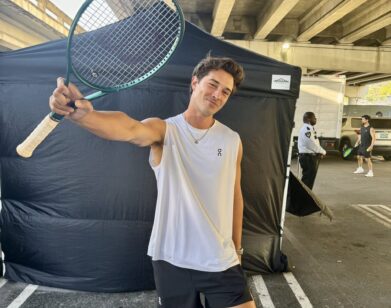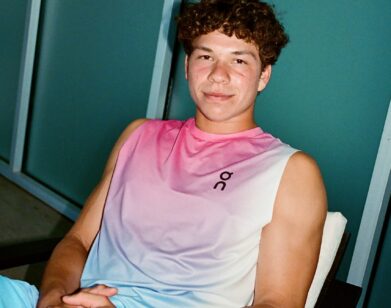TOUR DIARY
“It’s a Victory Lap”: Alaina Moore and Patrick Riley Take Us Inside the Tennis Farewell Tour
Bittersweet is the taste of Tennis’ farewell tour. After first meeting in a philosophy class at The University of Colorado Denver 15 years ago, Alaina Moore and Patrick Riley set off on a six-month sailing expedition up and down the Eastern Seaboard. So how should two musicians go about documenting a life-altering, 183 day experience at sea? By writing songs about it, of course. And so began their creative (and eventually romantic) partnership, releasing seven albums of smooth indie-pop and 70s soft-rock over the span of 15 years, the first one being Cape Dory in 2011, dropping post-voyage. Now, they’re touring their final album, Face Down In The Garden—by car, this time—after announcing on Instagram that the album and subsequent tour would be their last. After bidding their fans an emotional farewell, the couple joined us on Zoom to reflect on one last tour, falling in love with (and through) music, and yearning for a more mundane existence. Throughout our chat, Patrick’s watery-blue mournful eyes stuck to Alaina’s like glue. While leaving the band behind comes with mixed emotions, there’s still wind in their sails as they journey toward what they call “semi-retirement.”
———
CHARLOTTE ZAGER: Are you home yet?
ALAINA MOORE: We’re in L.A. right now, yeah.
ZAGER: If you had to describe the energy of the tour so far in a couple of adjectives, what would you say?
MOORE: Definitely bittersweet. But in some ways, part of me feels like it’s kind of a victory lap.
PATRICK RILEY: There are two elements to it. When we’re out there playing the show and we see the people in the front row getting pretty emotional, it’s really a lot to take in. You don’t know that your music means something to other people until you see it on their faces.
MOORE: But it also feels really celebratory because this tour feels like a culmination of everything we’ve been working for. We’ve been playing some of the biggest headline shows we’ve ever had. It does feel very joyful. And being able to build a set off of a seven-album catalog, I don’t know. It feels really special.
ZAGER: Has there been a standout show so far?
MOORE: New York was really amazing.
RILEY: That was definitely a moment where I was like, “How the hell did we get here?” That venue is obviously really special. Setting up with the Brooklyn Bridge behind us—
MOORE: We played Pier 17. It was so beautiful, just on the roof with the cityscape surrounding you. It was a big moment for people like us who, I mean, we’re not from the Midwest, but Colorado feels like a sister to the Midwest in a lot of ways. We’re kind of just like… an island.
RILEY: I think we’re more Midwest by culture than we are Southwest.
MOORE: Agreed. New York is always really intimidating. Conceptually, to us, at least.
RILEY: [Laughs] To us folk.
ZAGER: It was so interesting to learn about the sailing trip you took right out of college, the trip that inspired the creation of your first album. This previous voyage made me wonder if touring almost feels like a natural mode for you both?
MOORE: There’s a lot of really interesting parallels, but then there are a lot of polar opposites to it. Living in what feels like a small tube, like out of a van or in a sailboat, it’s a very confined space, and you bring all your belongings with you from place to place. But sailing is isolated and you’re out in nature and it’s also completely self-sustaining. We have solar panels and a water maker and it’s like living in an enclosed loop. But tours, it’s public. It’s outward-facing. You’re immersed in cities night after night after night in a huge crowd. And we also have our band and crew with us, so it’s very different. It’s like an introverted versus extroverted, isolated internal versus public outward.
ZAGER: It’s almost like you’re on a run by yourself in the creation process and then the tour is the exit where there’re people greeting you at the finish line.
MOORE: Yeah, it is. And weirdly, our final album, Face Down In The Garden, one of the ways that I imagined it was a runner at the end of the race falling down. It’s like a joyful release.
RILEY: You’ve used all your resources.
MOORE: Yeah, you’re depleted, but you achieved your goal. And that’s how it felt finishing that album. That’s how it feels finishing even this tour.
RILEY: We have a really odd career for the success level that we’re at touring-wise. We’re not at that success level by any other metric, so we’re definitely an odd band as far as the music industry is concerned. And I feel like our career has had all these really volatile moments where we’ve almost thrown in the towel multiple times because we’ve just been broke or we can’t find someone to help release our album, whatever it is. So to be playing a sold-out show at Pier 17 in New York after all the weird speed bumps we’ve had throughout our careers, it’s very odd.
MOORE: I feel like we’ve survived a lot of things as an indie band. It feels good to come to a natural conclusion.
ZAGER: Right. Face Down In The Garden style.
MOORE: Exactly. We finished the marathon.
ZAGER: I was going to ask about the title of the album.
MOORE: Weirdly, during COVID and in the last couple of years, I’ve gotten really into gardening, which has been extremely foreign from my life experience between sailing and touring. I’ve never been in any one place long enough to even have a houseplant, much less a garden. I feel like I’m in the earth-bound phase of my life. That’s part of why we were naturally transitioning towards this hiatus for the band. I want to be around for my family and our friends. I want to be present in people’s lives in a way that you can’t be when you’re never there. You know what I mean?
ZAGER: For sure.
MOORE: Like, I want to help my friend move. The very banal everydayness of life has been sacrificed. For people who live their life on the road, that’s the sacrifice you have to make.
ZAGER: Going back to the pictures that you guys took on the road, I saw several that featured electric scooters.
MOORE: Oh my god. That was actually a theme. We even wrote a song about scooting around at midnight.
RILEY: There’s a music video, too.
MOORE: We shot a music video of Mark, our front of house engineer. He would take a scooter at night to get White Castle at midnight from our hotel. And then it just evolved into this whole theme—
RILEY: I feel bad. We rented an Airbnb in Annapolis, and it’s a very quaint town. Very HOA-heavy streets.
MOORE: We literally overran it with scooters. We were like, the scourge of the neighborhood.
RILEY: I’m sure they’re still talking about it.
ZAGER: I assume you’re not scooting to the different tour locations. Are you on a bus? In a car?
RILEY: We’re still in a van and trailer because touring’s our only income. Streaming royalties aren’t paying for anything, record sales aren’t paying anything. We get zero licenses.
MOORE: Lots of people talk about how they can’t make money on the road. Was it Kate Nash who has been talking about it a lot? I know Santigold canceled a tour. She couldn’t make it profitable and I think it’s just been really tough. We have to be extremely DIY.
RILEY: I drive permanently and I also TM and then Alaina is also kind of a TM, too, but also helps out with all sorts of stuff on the road. We have a dual position.
ZAGER: A joint effort, just like with the music. Speaking of the music, I listened to the album and loved it.
MOORE: Thanks!
ZAGER: I noticed a couple of the song titles, “At The Apartment” or “At The Wedding.” Does a sense of place help orient your writing?
MOORE: Those songs and the stories of those songs are linked and “At The Apartment,” that’s the place where Patrick was living when we met, when we fell in love. It was the first place we lived together. It’s the place where we wrote our first songs. It’s the place where we first bonded over our interest in music in general. I felt like since we knew this would be our last album, I did a lot of reflection over our career, our past, our relationship unfolding against the backdrop of the band. So starting with “At The Apartment,” it felt like that was the beginning of everything.
RILEY: That was where our creative bond was made, and it was kind of a realization that we knew we were going to do something together. But we just didn’t really know at the time it was going to be this big of a thing.
MOORE: But it’s a very specific memory. The first lines of the first song, “It’s at the apartment, we lay on the floor dissecting every sound on an old 45…” It was literally our first bonding experience over music. And he put a record on for me.
RILEY: And we would just talk about drum tones.
MOORE: We would literally lay on the floor next to each other and listen and just discuss it. I had never had that relationship with someone. We were both philosophy majors at the time, but we would just analyze the music. And yes, dissect the drum tones, dissect the guitar tones. I think that was when Tennis was first conceived as just a little idea. Some aspects of our life seem larger than life, like the sailing trip or whatever, but so much of our life is much more mundane. Just a plain old living room in an apartment.
ZAGER: Grounded.
MOORE: Exactly.
ZAGER: Do your stories drive the music? Does the music drive the story?
MOORE: The music drives itself.
RILEY: You can’t try and force a song in a direction that it doesn’t want to go. I do a lot of noodling, so to speak, on various instruments. Whether it’s a chord progression or an interval that I’m really attached to, that interval will pull us in a direction that we truly have to just let it take.
MOORE: You have an idea, obviously, but then once you start working on it, you need to be in conversation with it and respond to it. It starts to have its own internal logic and its own ends. If you aren’t responding to that, then you’re not going to get anywhere with the idea.
RILEY: Something I notice a lot is that if you’re trying to put your identity on a certain song, which might seem like the right thing to do, ultimately there’s a point where your ego will get in the way of where the song wants to go. So we’re constantly trying to erase our egos and listen from a third-person point of view to where we can be as pragmatic as possible, just hearing what’s coming out of the speaker. Am I having a guttural reaction to this? Or is my brain just happy because my ego is being reflected in a positive way?
MOORE: That’s such a good distinction.
ZAGER: Is there a specific song that’s been more enjoyable to play live?
MOORE: “Weight Of Desire” has been very fun to play live.
RILEY: It feels like we’re riding a bull or something. It’s really, really hard to stay on top of it. But when we do pull it off, it’s really fun.
MOORE: “12 Blown Tires” has been really fun to play, especially from a lyrical perspective. I’m just so proud of the way I was able to express myself in that song. It feels very truthful and vulnerable.
ZAGER: Do you have any pre-show rituals?
MOORE: Oh my God. I have three-
RILEY: Too many, too many.
MOORE: Every single minute is accounted for and mapped out.
RILEY: I wish she had less.
MOORE: And I can’t deviate from any of it. But it’s very sacred to me. It helps me transition into the state of mind that I need to be in to do the show. It’s mostly just really simplistic routines. But it’s like, I eat at this moment, I have all of my little rituals around soundcheck and preparing. Sometimes it feels like preparing for a sacred rite, whether it’s my in-ear monitors that I clean and I lay out and my clothing that I steam, and then the makeup. I have this hour where I do my makeup really slowly and methodically, and I take way longer than I could ever possibly need to do my makeup, but it’s part of my transition. And then I steam. I do a nebulizer and I have a vocal warmup that’s 25 to 30 minutes long. It really, really helps me slowly transition into the head space that I need to be in. He does not have a pre-show ritual.
RILEY: No, unfortunately, because I’m the tour manager. There’s usually just like, so much stupid shit to do right before the show.
MOORE: A fire he’s putting out.
ZAGER: You don’t get any pre-show rituals?!
RILEY: Yeah. I mean, sometimes that’s good because if I thought about it too much, I would maybe create a nervousness that didn’t exist.
MOORE: It’s different, though, for me. My instrument is my body and after a long day of driving—I’m probably a bit dehydrated and I’ve had air conditioning shooting into my face, drying my voice out or whatever. I have a lot of things that I need to do to prepare my body to be able to do its job.
RILEY: This is the only thing I’ve ever known, this construction of our band where I tour manage and then also play in the band. So it weirdly is comforting to be putting out a fire right before we go on stage.
ZAGER: Maybe putting out the fire is the pre-show ritual.
MOORE: Honestly, probably.
ZAGER: What are you going to miss the most about all of this? And what are you most looking forward to after the tour?
MOORE: I’ll miss singing with total strangers and having this sense of bonded-ness, of a shared experience where we all know each other in a way that is intimate yet slightly contrived. It’s like a fiction that we’ve all created. My sense of them and their sense of us. It’s really profound and obviously, we’re giving that up, to some extent. That is going to be hard. I mean, that’s been the best part of the band, just directly interacting with the people who love what you do.
RILEY: Yeah. I feel like there are those shows that we have that—there’s something special happening that’s kind of ineffable. Everyone’s feeling a sense of belonging and community, for lack of a better word. I don’t really know what to call it. It’s a really profound experience and it feels bigger than what the two of us could possibly create.
MOORE: I will never forget it. But it’s also not real life. Part of me is also ready for the next chapter. But I feel honored to have ever made contact with that, and I want to be a good steward and honor that bond, even as we move towards a semi-retirement phase of life. I feel like I’m the protector of everyone who loves Tennis, of their memories of our band, and I want to just hold that sacred.

